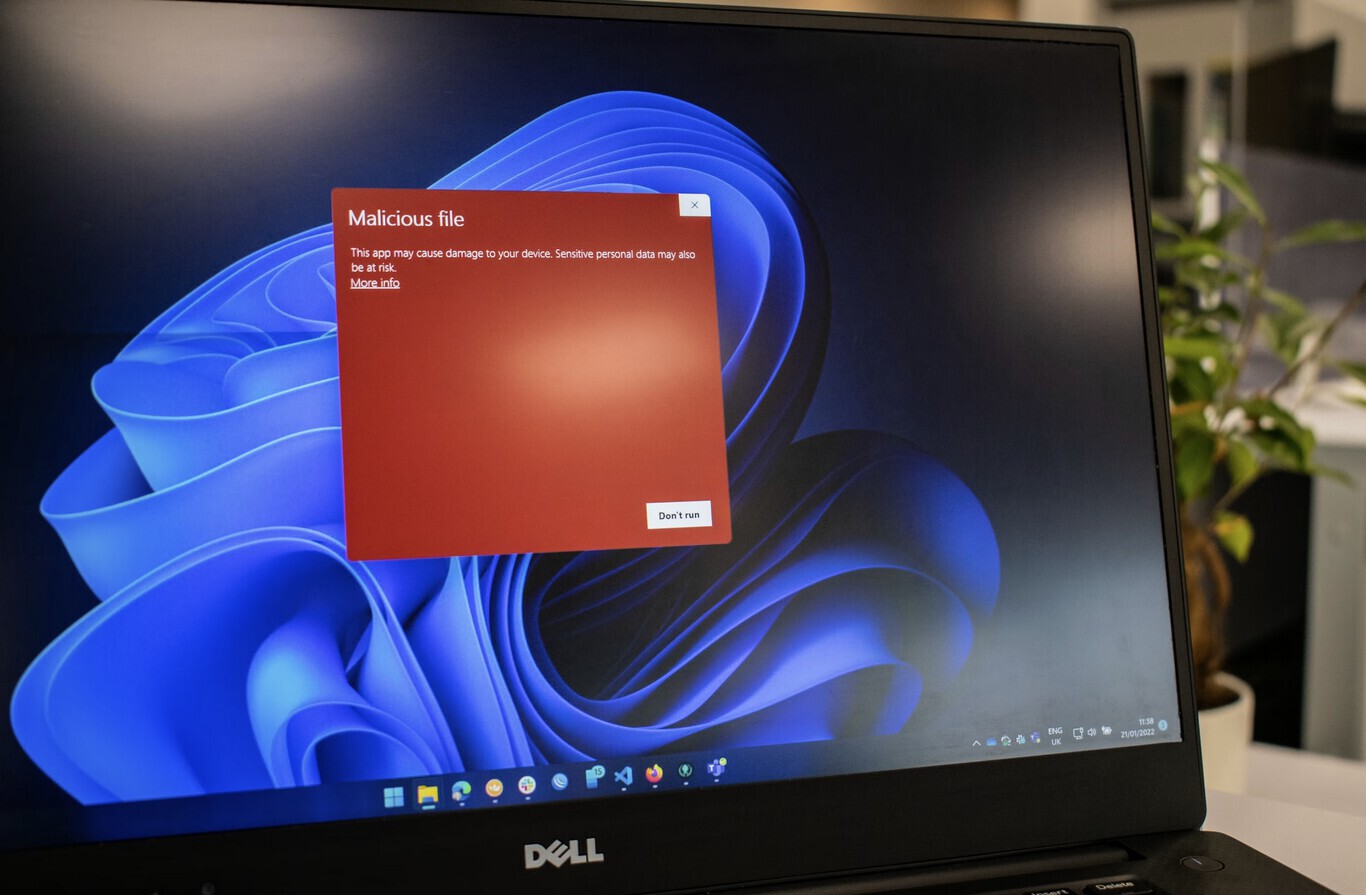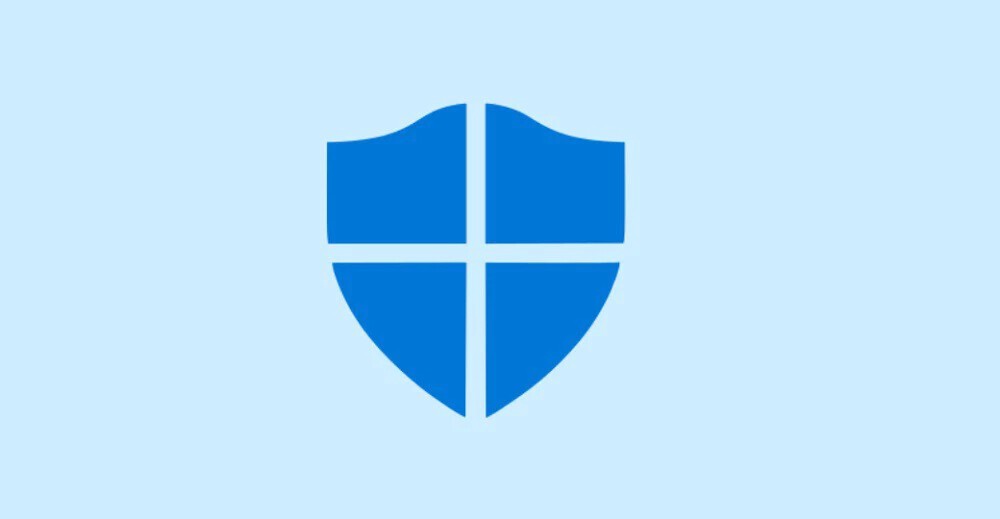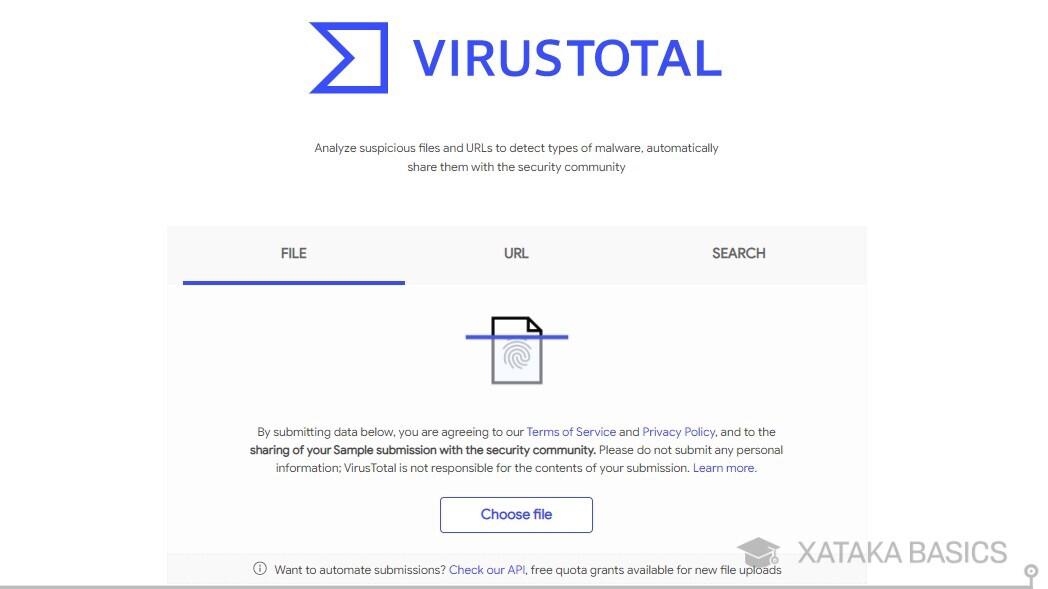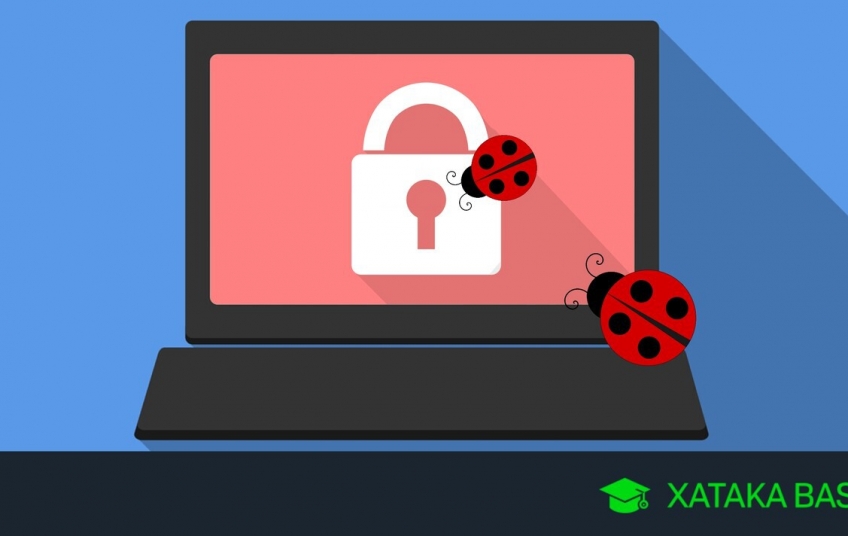We bring you a complete guide so you can know everything about antivirus in Windows 11, so that if you don't have much idea about them, learn to know the most important thing. We are going to start by explaining what exactly an antivirus is or to what extent they are necessary, and the basic differences between free and paid ones.
In addition to giving you all the explanations about antiviruses, we are also going to tell you the best free, online and paid antiviruses. In this way, in the event that you need to use one for basic protections, punctual scanners or a stronger protection of your security, you have the best alternatives.
What is an antivirus?
Windows is the most widely used desktop operating system in the world. This is a negative part, and if a cybercriminal wants to make a malware or virus to carry out any misdeed on the maximum number of users, it is normal that they opt for the one that most people use. That is why there are usually more viruses in Windows than in other operating systems such as macOS or GNU/Linux.
Antiviruses were born as programs that are responsible for detecting and eliminating computer viruses on a computer. That was its main function in the 90s and 2000s, simple programs capable of detecting these threats and preventing them from infecting a computer, or trying to disinfect it if it already had a virus.
Now, computer threats have become more complex, and antiviruses have also evolved to become more complete and complex security suites, and in which more services are offered that have to do with your security when browsing.
Therefore, current professional antiviruses can offer other security services, such as protection against different espionage techniques, even protecting against the recording of your keystrokes to know what you write, such as passwords. They can also protect against unauthorized cryptocurrency mining, credential theft, or computer hijacking via ransomware or spam email attacks.
Today, we can say that there are two different types of antivirus, paid and free, and each of the two types has a different approach. That is why almost all security companies with paid antivirus also have a free one, and that in the free ones there is a large ecosystem of alternatives.
Is an antivirus necessary?
In recent years, many people say that the level of security in Windows has reached such a point that it may not be necessary to use an antivirus. Especially since Microsoft itself has already implemented a free security solution to protect you that does everything quite well.
This statement is not entirely true. It is true that Windows Defender covers most of the functions of free antiviruses, so for basic and essential protection you may not need to install anything else. This is especially the case for casual users who don't have a lot of sensitive data on their computer and who, in the event of a computer infection or hijack, can simply format everything.
In the event that you have sensitive data, it also depends on many factors. If you are a person who continually backs up your data and uses clouds for them, well, the same, everything can be recovered.
It also depends on your knowledge of cybersecurity and your ability to detect threats and fraud. If when you enter a strange website you immediately know that something is not right, or if when you download a file you immediately know that it should not be executable for a multimedia file, then with this knowledge you can also avoid many threats.
However, the world of cyber threats is also evolving very fast, and there are many types of malware that may be affecting you without knowing it. Obviously, if you are careful with each and every one of the programs you install, where you do it from, and take care of parallel installations, you will be able to avoid most of them.
But there are still threats, and there are malicious applications capable of "hijacking" your computer and your data or recording all the keys you type, thus being able to steal your passwords or credit card numbers. In addition, it is not the same that I have to format Windows as it is for a person who always needs the computer to be operational and who has very sensitive data on it.
Therefore, it all depends on what you want to expose yourself to the risks that exist when we surf the net. With all this I am basically referring to the basic antiviruses, the free ones that simply detect threats.
Because the security suites that classic antiviruses have become also include other privacy and security tools that are very useful, from password managers to firewalls, VPNs for safe browsing, spam filters and parental controls. They also have protections so that your camera or microphone cannot be accessed without permission.
Therefore, today's antiviruses protect you against much more than computer viruses, and offer you solutions for other types of security risks, or to have more peace of mind while browsing. All this without having too much of an impact on the PC, without slowing it down or causing things to load slowly.
What you have to think about is that adding an antivirus to your computer is adding an extra layer of security, even if your operating system already has security elements. And this means that the more layers of security you have, the more difficult it is for you to get infected with a virus.
This means that it all depends on how much you want to protect yourself when you browse, or how much you value your security and privacy online. And of course, it also depends on whether you are willing to pay a company to guarantee that security. You can do without antivirus if you know how to identify most threats, but they guarantee better security if you choose to use them.

Free antivirus or paid antivirus
People often make the mistake of saying that a free antivirus can give you the same benefits as paid alternatives. This mistake is usually due to the fact that many people still think of antiviruses as the basic and simple security programs of a couple of decades ago, when they have really evolved quite a bit.
It all depends above all on your needs, on what you are really looking for in an antivirus. If you are just looking for a simple solution to search for viruses on your computer, it is true that either of the two alternatives can help you, although free antiviruses have some other drawbacks that you should also be aware of.
First of all, free antiviruses offer the most basic and essential protection, with relatively up-to-date virus databases. Usually, you will be able to run them to see if your computer is infected. Therefore, they are usually more for when you have already had the infection, although some models may have some blocks for suspicious programs and especially known viruses.
The downside is that many of these programs may come with advertising and some of their paid features. There have also been some cases of free antiviruses selling user data to other companies for profit. In the end, the maxim can be fulfilled that when something is free in the world of computing, the product can be you.
In the case of paid antivirus, even in essential tasks such as virus protection, they usually have much more up-to-date virus databases. Also, most of the main security suites have a kind of rapid response system, so that as soon as a new threat begins to be detected, they try to secure their clients as soon as possible.
In addition to this, as we have told you above, they usually go beyond antivirus and offer many more solutions related to your online security. The number and type of solutions usually depend on each company, although they almost always protect you against espionage systems and other types of cyber attacks.
Here, therefore, it all depends on how and for what you want to use the antivirus, and how much you want to protect your computer. If you're someone who knows how to prevent your computer from getting infected and how to avoid getting scammed by download scams or phishing, then being very careful with Windows' own built-in antivirus might suffice. But if you are looking for a more professional option with more options, you may want to consider paying for a security suite.
Best free antivirus for Windows 11
In the event that you are looking for simple protection for your computer and that you do not need any of the extras that paid suites usually offer, here is a small list of the most recommended free antiviruses for Windows 11.
-
Windows Defender: Windows Defender is the antivirus that is integrated within Windows itself, and offers basic protection with which it has been practically unnecessary to need to install another third-party antivirus in Windows. It is fully integrated into the system, and includes an up-to-date threat base, real-time and cloud-based protection, automatic sample submission, computer tampering protection, and on-the-fly application scanning.
-
Avira Free Antivirus: A complete free version of this antivirus, but which shares its virus database with the paid version. It has very good threat detection rates and does not have too much impact on the computer's performance. It also has protection against harmful links, against threats that may have been inserted into legitimate applications, ad blocking and monitoring in your browser, and an anti-phishing shield. Official website: Avira Free Antivirus.
-
Kaspersky Free: Despite some of the controversies it has had in the United States, in the face of which the company has acted transparently, this is still one of the best antivirus today. It uses the payment engine of its paid version, and in addition to antivirus it also has protection against adware, VPN and storage and password protection. Official website: Kaspersky.
-
Malwarebytes Free: It is a simpler tool, and not so much an antivirus itself as a tool to remove malware. You won't have active protections or anything like that, just an app to track malware manually. Official website: Malwarebytes.
-
Panda Free: Panda is one of the big heavyweights in the antivirus industry, and its free version protects against malware and spyware. In addition to this, it also includes some other features like USB protection and scanning, Do Not Disturb gaming and media modes, and a recovery system. It also has a VPN that in the free version is limited to 150 megabytes per day. Official website: Panda.
-
Bitdefender Free: A very good alternative with good detection rates and user-friendly. Its free version scans the computer in the background looking for any malware that wants to sneak in, and it doesn't include ads. It has fast scanning and good basic protection. Official website: Bitdefender.
-
360totalsecurity: A simple antivirus with basic functions, such as real-time protection of programs and files and web browsing. It also has protection in online purchases and automatic backups. Official website: 360totalsecurity.

Free online antivirus
Now, we will also tell you some free online antivirus. These online antiviruses allow you to scan your computer for threats directly from the network, and without having to download or install anything on your computer, as well as upload or link to files to see if they have unpleasant surprises inside. They are a resource that can be useful for specific moments.
-
VirusTotal: Possibly the best in the sector, an initiative from Malaga bought by Alphabet. It stands out above all for its great speed when analyzing files, searching for threats in the databases of dozens of antiviruses. Come on, it's not an antivirus itself, but an intermediary between you and dozens of them. Official website: VirusTotal.
-
Avira: Avira also has a web version, with which you can submit your files to their search engines. Of course, with a limit of 50 MB per file. It allows you to upload the file from PC or point to its URL. Official website: Avira.
-
Hybrid Analysis: Hybrid loops the loop and does not send the file to the analysis engines of other antiviruses, but to pages like VirusTotal, CrowdStrike Falcon or MetaDefender, which are the ones that send it to other antiviruses. Official website: Hybrid Analysis.
-
URLVoid: This antivirus does not scan your files, it scans web pages instead. It is basically an analysis of online reputation based on incidents or malware that may have been found in a URL. Official website: URLVoid.
-
Dr.Web: A page that allows you to upload files of up to 10 MB to analyze them and find out if there are viruses inside. It is a quick and easy alternative. Official website: Dr. Web.
-
Jotti: A website that allows you to upload up to 5 files at the same time with a limit of 250 MB per file. These, it analyzes with more than 15 antivirus engines to tell you if it has detected any threat in them. Official website: Jotti.
-
Kaspersky VirusDesk: Like almost all the big antivirus companies with a web alternative, Kaspersky also has its own portal to scan your uploaded files for threats in its internal engine. You can upload files of a maximum of 256 MB from your device, and also point to files using IPs, Hash or URL addresses. Official website: Kaspersky.

Best paid antivirus
And now we go with a small selection of some of the best paid antivirus, which are already complete security suites that include a large number of protections for your digital life and when you surf the net.
-
Bitdefender: Bitdefender is possibly one of the best paid antiviruses on the market, with excellent protection and very little impact on computer performance. It protects you from threats of all kinds, but it also has defenses against phishing, firewall, VPN, spam filter, parental controls, extras to protect your privacy including camera and microphone, and a secure browser to make online payments with it. Official website: Bitdefender.
-
Kaspersky: One of the best antiviruses that has come out of its controversies well thanks to opening the code of its applications. It has good protection against malware, blocking access to webcam or protection when entering bank details, as well as protection against threats and Zero Day attacks. All with little performance impact and few false alarms. Official website: Kaspersky.
-
Avira: Another of the most recommended options, with good protection against malware and any threat in real time. It also has options such as encrypting online browsing, generating strong passwords or speeding up and cleaning your mobile or PC. All this without much impact on the performance of the equipment. Official website: Avira.
-
MaAfee: One of the great classics, which in fact comes pre-installed on the equipment of many manufacturers. Although its price is a bit high, it has very good protection and good features. It protects you against malware and ransomware, with good performance and a good list of premium features such as unlimited VPN or parental controls. Official website: McAfee.
-
ESET: An excellent security company with different types of antivirus for each context. It has good threat monitoring options, rapid response to protect all customers as soon as some of them begin to suffer some type of attack, protection of bank data and your network, as well as defenses against malware, ransomware and phishing. Official website: ESET.
-
Norton: Good quality with lots of extra features. In addition to protection against all types of malware, it offers a firewall, backup copies with 2 GB of cloud storage, VPN, online privacy tools and parental control. Perhaps its only but is that its impact on the performance of the team is a little higher than others. Official website: Norton.
-
Trend Micro Antivirus: An antivirus for those looking for something simpler, but without losing a good defense thanks to its protections against malware and ransomware or tools to protect your online identity. It doesn't have as many features as its rivals, but at a low price it does what it does well. Official website: Trend Micro.






